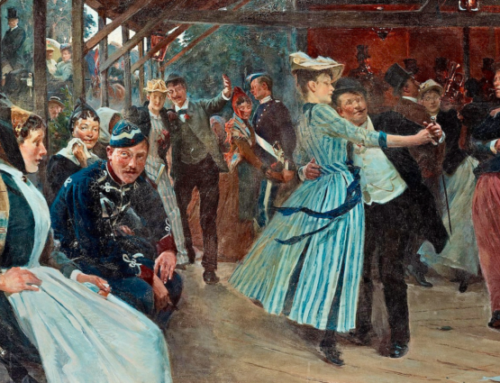 To know what I was like as a teenager in the eighties, you should know this: at a time when most boys’ heroes were sports figures, mine was an antisocial weirdo who had been dead for 125 years.
To know what I was like as a teenager in the eighties, you should know this: at a time when most boys’ heroes were sports figures, mine was an antisocial weirdo who had been dead for 125 years.
I first encountered Henry David Thoreau when Mrs. Meyer, my eighth-grade English teacher, assigned us his essay on civil disobedience. I’m sure she immediately regretted doing so, since I took Thoreau’s argument to mean I should question everything I was asked to do in school, including in English class.
Most people know Thoreau for the book he wrote about his time spent living on the bank of Walden pond. In it, he wrote his most quoted line:
“The mass of men lead lives of quiet desperation. What is called resignation is confirmed desperation. From the desperate city you go into the desperate country, and have to console yourself with the bravery of minks and muskrats. A stereotyped but unconscious despair is concealed even under what are called the games and amusements of mankind.”
At fifteen, I was naïve enough to think that this great mass of men would not include me. And, perhaps, I have managed to spare myself the worst of the condition Thoreau described; but I have certainly known my share of quiet desperation: hours so filled with anxiety I thought it might crush me, zombie days spent stumbling forward, looking not for brains but just the chance to return to bed.
Thoreau saw the seeds of what would reach full flower only in our time. And though our age is uniquely characterized by despair, it has always been the case that the mass of men lead lives of quiet desperation. Most people are just trying to get through life, and always have been.
Because desperation is universal in mankind, so is the hunger for the Quieter Life. At some point, a few of us make the connection between the desperation we feel and the life we have been living. A life whose focus is material gain, social approval, distraction from the difficult realities of the inner world, or even just day-to-day survival is bound to make us desperate.
It’s hard to think about the hunger for the Quieter Life without thinking about another concept almost everyone seems to have forgotten: world-weariness. A certain tiredness settles into the soul. We feel it at night when we wait for sleep. If we are lucky, we feel it when we see something beautiful, a morning sky, a building, a baby. The world loses some of its lustre as life goes on. In the best-case scenario, that lustre is replaced with a deeper, melancholic longing, a vision of what it all might mean, that, although it may inspire us, doesn’t make us any less soul-tired.
Used to be, this happened only to older people. Now, it happens to younger people, too. In the age of Instagram and Tinder, of cheap travel and endless porn, young people are exposed to more of the worst the world has to offer at an ever earlier age. The result is a generation that feels this world-weariness but has no vocabulary to describe it.
Do you know that Sturgill Simpson song “You Can Have the Crown”? The one where he declares himself the king of sh*t mountain? I can’t help but think that many people feel like that. After spending their energy, time, and integrity to get to the top of the culturally scripted mountain, they find themselves enthroned in a kingdom of excreta.
That, for sure, is gonna cause some quiet desperation. And a hunger for the Quieter Life.
It’s other things, too. Just before I began writing this post, I tried to get our kids to bed. Forty-five minutes after bedtime, the older came down to complain that her younger sister, sleeping in the bunk above, was making noise. She came down again. And again. After her third trip downstairs to rat out her sibling, the younger one came down to complain that her sister was complaining about her. All this, near the conclusion of a day so busy, I had not been able to take my morning shower until ten minutes before bed.
Yes, it’s trivial in the long run, but it’s the long run that wears a body out.
The good news is that we are not powerless. We can make choices to move toward the Quieter Life at any time. Sure, creating a more peaceful, humane existence that allows us to be part of something other than the mass of desperate men might not be easy, or happen all at once, but the first steps are already there waiting to be taken. The Quieter Life is only quieter moments strung together, and the next quieter moment is never far away.
About six weeks ago, I was on my hands and knees in the backyard picking through our strawberry patch looking for ripe ones. We have feeders and apple trees and little houses for birds, so it’s not surprising that it’s a center of avian activity out there. This particular morning, I heard a long and complicated song sung over and over. The wren had made his seasonal return. A few days later, I saw him sheltering in one of the little houses attached to the porch, his head protruding from the opening, serenading the rain.
Perhaps the first step many of us need to take toward a quieter life is to search for the next quieter moment. Birds in our yard mean quieter moments are always at hand. All that is required is to step outdoors, take a few breaths, and see if the wren is about. A single moment of contemplation doesn’t resolve any of life’s knotty complexities, but it helps sustain the weary soul in its work. Some days demand many such moments.
I think I will have one now. If I could, I would spend the day in contemplation of wild things. The incurable scolds of our culture, the productivity gurus, the makers of standardized tests, every boss who ever insisted we stay late, would, no doubt, shake their angry fists at this irresponsible act. But, Thoreau, I’m sure, would approve; and his, of course, is the company I prefer to keep.
The Imaginative Conservative applies the principle of appreciation to the discussion of culture and politics—we approach dialogue with magnanimity rather than with mere civility. Will you help us remain a refreshing oasis in the increasingly contentious arena of modern discourse? Please consider donating now.
The featured image is courtesy of.







Already have it, my good man.
For the last almost 30 years, whilst wresting a living for my family from the bowels of an electric generating plant, on my front porch has been a swing. On said swing, I have been in the habit of sitting and reading, or listening to music, or merely sitting. Thirty feet in front of me is a bird bath, under a gnarled double mesquite, and during the day, all sort of traffic from doves to hummingbirds pas through. Occasionally, a hawk will swoop closer for a look. At night, critters of assorted species come into the yard seeking perhaps a chance at the basin of water for the household dog. Beyond, to remind me the world is THERE, is an interstate highway, 150 yards from my front door. The traffic is far enough away, and shielded by the brush, to be no more than a murmuring reminder of Industrial Man. (Without whom, contra the Idealistic Simplificators, life would be nasty and brutish and short.)
I am retired now, and can indulge my fancy at any time, but it must be said, the possession of such riches was what got me through the last 20 years of “working life”. But, then, I recall when I was a teenager and college student in the Sixties, how many of my contemporaries fell under the spell of Walden and tried to recreate an older communal life, in places from New Mexico to Tennessee. And mostly failed.
Perhaps the quiet life is a luxury many cannot afford. Perhaps it is an indulgence not many desire. Or perhaps some of us are simply lucky.